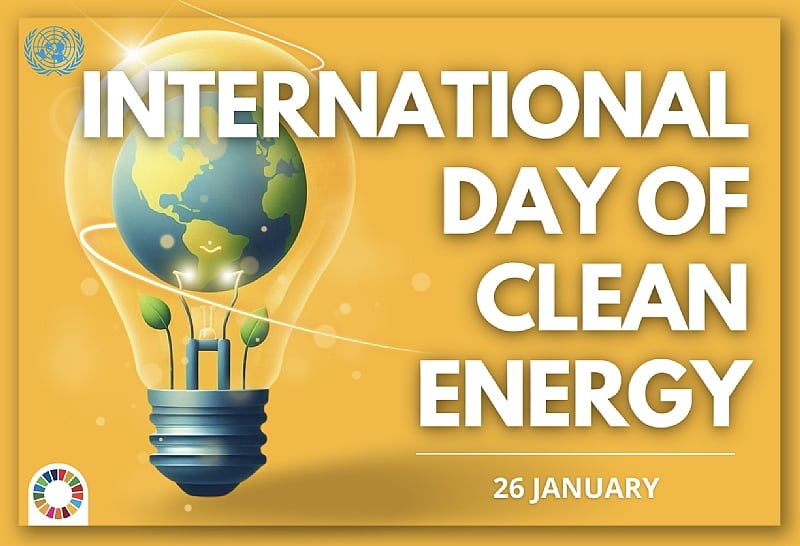The Urgent Need for a Clean Energy Transition in Ghana: A Call to Action on International Clean Energy Day
The Institute of Coastal Climate Change Environmental Protection-Ghana (ICCCEP-GHANA) joins the global chorus in marking International Clean Energy Day, underscoring the pressing need for a swift transition to clean energy sources. This transition is not merely an environmental imperative but also a crucial step towards ensuring energy access for all and fostering sustainable development in Ghana. While acknowledging the strides made in Ghana’s clean energy sector, ICCCEP-GHANA recognizes the significant hurdles that remain in achieving a fully realized clean energy future. The organization calls for concerted efforts from government bodies, clean energy experts, and stakeholders to accelerate the transition, emphasizing the interconnectedness of climate action, energy security, and economic progress.
The imperative to shift from fossil fuels to clean energy sources is rooted in the escalating threat of climate change. Ghana, like many other nations, is increasingly vulnerable to the adverse impacts of a changing climate, including rising sea levels, erratic rainfall patterns, and extreme weather events. These impacts pose significant risks to coastal communities, agricultural productivity, and overall economic stability. Transitioning to clean energy sources, such as solar, wind, and hydropower, offers a pathway to mitigate these risks by reducing greenhouse gas emissions and promoting environmental sustainability. Moreover, a clean energy future can enhance Ghana’s energy security, reducing dependence on volatile global fossil fuel markets and promoting energy independence.
ICCCEP-GHANA outlines three key areas of action to expedite the clean energy transition in Ghana. First, the organization calls for increased investment in clean energy technologies. This includes not only financial investments but also investments in research and development, capacity building, and infrastructure development. Governments and private sector entities must prioritize clean energy projects, creating favorable investment climates and providing incentives to attract both domestic and foreign investment. This investment will be crucial in deploying clean energy solutions at scale, ensuring that they become the dominant source of energy generation in Ghana.
Second, ICCCEP-GHANA emphasizes the need for supportive policies and regulations. Governments must create a regulatory framework that encourages clean energy adoption and removes barriers to its deployment. This includes streamlining permitting processes, establishing clear standards for renewable energy technologies, and implementing policies that incentivize investment in clean energy. Furthermore, policies should address the integration of clean energy into the national grid, ensuring its efficient distribution and utilization. A coherent policy landscape is essential for creating a stable and predictable market for clean energy investments, fostering long-term growth and sustainability.
Third, ICCCEP-GHANA underscores the importance of ensuring energy access and affordability for all. The transition to clean energy must be inclusive, benefiting all segments of society and not exacerbating existing inequalities. Stakeholders must collaborate to develop innovative financing mechanisms and business models that make clean energy accessible and affordable for low-income communities. This may involve targeted subsidies, community-owned renewable energy projects, and off-grid solutions tailored to the specific needs of remote and underserved areas. Ensuring equitable access to clean energy is not only a social imperative but also a crucial driver of economic development and poverty reduction.
The call for increased investment in clean energy technologies is central to ICCCEP-GHANA’s advocacy. Investing in clean energy offers a multitude of benefits beyond mitigating climate change. It stimulates economic growth by creating new industries and jobs in the renewable energy sector, from manufacturing and installation to maintenance and operation. Furthermore, it enhances energy security by reducing dependence on imported fossil fuels, shielding Ghana’s economy from volatile global energy prices. The transition to clean energy also improves public health by reducing air pollution associated with fossil fuel combustion, leading to fewer respiratory illnesses and other health problems.
The call for supportive policies and regulations highlights the crucial role of government in creating an enabling environment for clean energy development. Clear and consistent policies can provide long-term certainty for investors, attracting capital and spurring innovation in the clean energy sector. Regulations can ensure the quality and safety of renewable energy technologies, fostering public confidence and promoting their adoption. Moreover, policies can address the integration of intermittent renewable energy sources like solar and wind into the electricity grid, ensuring grid stability and reliability.
The emphasis on energy access and affordability reflects ICCCEP-GHANA’s commitment to a just and equitable energy transition. Ensuring that all citizens have access to clean and affordable energy is a prerequisite for sustainable development. It empowers communities, enables economic opportunities, and improves quality of life. Addressing energy poverty through clean energy solutions can have transformative impacts, particularly in rural areas where access to reliable electricity remains a significant challenge.
ICCCEP-GHANA’s call to action on International Clean Energy Day serves as a reminder of the urgency and importance of transitioning to a clean energy future. The organization urges all stakeholders, including government, private sector, civil society, and individuals, to join forces and work collaboratively towards this shared goal. The transition to clean energy is not only an environmental imperative but also an opportunity to build a more sustainable, resilient, and prosperous future for all Ghanaians. By investing in clean energy technologies, implementing supportive policies, and prioritizing energy access for all, Ghana can unlock the full potential of clean energy and pave the way for a brighter future.














